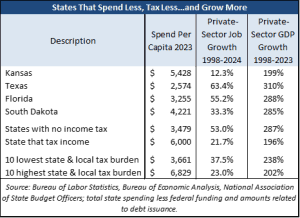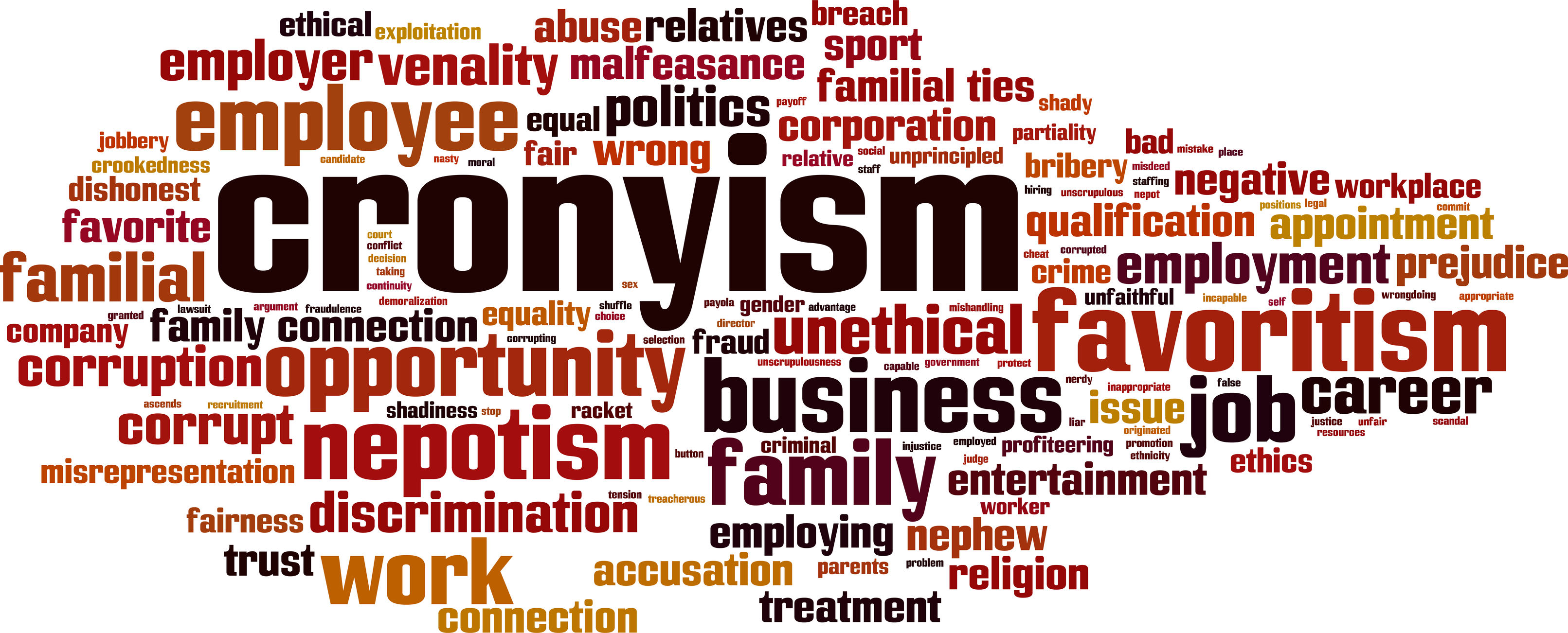Former chief economist for the Office of Management and Budget under the first Trump administration Dr. Vance Ginn said the Department of Government Efficiency (DOGE) is doing important work — and that state-level efforts are needed as well.
Ginn, who is now a senior fellow for the Kansas Policy Institute, which owns The Sentinel, said he is hearing that DOGE is finding waste, fraud, and abuse is a significant portion of the budget at federal agencies.

“I heard that maybe it’s about 10% of a lot of these programs, and that might be lowballing,” Ginn said in a recent interview. “I’m glad to see that Elon (Musk) and DOGE are putting more emphasis on this.”
Ginn said given the growth of the federal budget over the last four years, even a 10% savings would be significant.
“Right now, there’s about a $6.5 trillion federal budget, which is interesting because when I left (OMB) in … 2020, it was four and a half trillion before COVID and everything else happened,” Ginns said. “So we’re up $2 trillion. It’s up 50% in just a few years — so who knows how much even more waste there is during that period.
“But let’s say we just took the 6.5 trillion and said 10%. That’s $650 billion a year in potential fraud, waste, and abuse.”
Ginn said, while there may not be 10% in every agency — some may be less, some may be more — “I do think there’s a strong argument that there’s too much bureaucratic bloat across the board.”
Ginn said what Musk did at Twitter is a good example.
“Elon Musk came in and bought Twitter and cut 80% of the workforce, and they’re still around and even doing better than they were before,” Ginn said. “I think there’s a lot of efficiencies to be made within government.
“Some of it may cost a little bit of money, so as a fiscal hawk, I don’t want to spend more money, and I mean that just in the sense of the computer upgrades and stuff like that. But if you take into account the reduction in the federal workforce — I think 70,000 of them resigned here recently — and then that’s going to influence longer term, their pensions and different things that won’t be as much. I mean, there’s plenty of savings that are going to come from all this as well.”
Ginn also said there should be no “sacred cows” when it comes to auditing and finding redundancies and bloat, noting even the Department of Defense should be in the crosshairs.
“I mean, there shouldn’t be any sacred cows whenever you’re looking at this because across the board, we’re spending too much, bureaucracy is too high, and we’ve got a fiscal crisis on our hands that’s got to be addressed now,” Ginn said, adding ultimately, Congress is going to have to be involved. “At the end of the day, a lot of this, I think, will also need to be taken up by Congress. I mean, they have the power of the purse.
“There’s … only so much the executive branch is going to be able to do. But if they can provide the information, the intel, and some other steps, I think you know, that would definitely lead the way for Congress to act.”
Ginn also said this time around the Trump administration is moving faster than the bureaucracy can react, making it harder for entrenched officials to delay or block moves to find efficiencies.
“They weren’t well prepared when they came in in the first administration,” Ginn said. “A lot of them were new. A lot of them were outside of government, which is good, but they just didn’t know the inner workings, and so now, this time around, not only is Trump more engaged and knows more of the process, but he’s brought on people who also know the process, like Russ Vought being back at OMB, you know, Kevin Hassett, being at National Economic Council. I mean, you’ve got some folks who are some of the key players last time that are there, which already know how to get the wheels turning, and that’s been a big part, I think, of getting them on the right foot and getting it started earlier this time.”
State-level DOGE will look different than federal
Ginn said state-level DOGEs — such as the Committee on Government Efficiency recently formed in Kansas — will look somewhat different — by necessity — than what is being done at the federal level.
“I think state-level DOGEs could also work just because it would be good to get outside groups to be looking at the state budget,” Ginns said. “I think that can also be done through independent efficiency audits of government.
“But here’s the thing, is that at the federal level, there’s, there’s a little bit more wiggle room on what they need to cut, and it’s so bad off that there’s a lot of fat to cut. At the state level, they can also — they’re also spending way too much in Kansas — I think we also know, like, which areas should be cut.”
 KPI’s annual Green Book, which tracks spending per resident and other data for all 50 states, provides a good picture of the ability to provide the same or better quality of service at more efficient costs. Every state provides the same basket of services (education, transportation, social services, etc.), but some states do so much more efficiently, which allows them to have lower taxes.
KPI’s annual Green Book, which tracks spending per resident and other data for all 50 states, provides a good picture of the ability to provide the same or better quality of service at more efficient costs. Every state provides the same basket of services (education, transportation, social services, etc.), but some states do so much more efficiently, which allows them to have lower taxes.
The nine states without an income tax spent $3,479 per resident in 2023, whereas the income-taxing states spent $6,000 per resident. Kansas spent $5,428. The adjacent shows that the states that spent less also taxed less and had superior growth in private-sector jobs and GDP (economic activity).
Ginn said a state-level DOGE could also pressure state agencies to follow zero- or performance-based budgeting—both are basically clean-sheet budget processes in which the previous year’s budget is not used as a baseline—which would likely lead to significant savings.
“I mean, they have the tools to do it, it’s just a matter of getting it done,” Ginn said. “But just like the federal level, having 10% or more of waste — Kansas has it, Texas where I live has it, everybody has it.”


